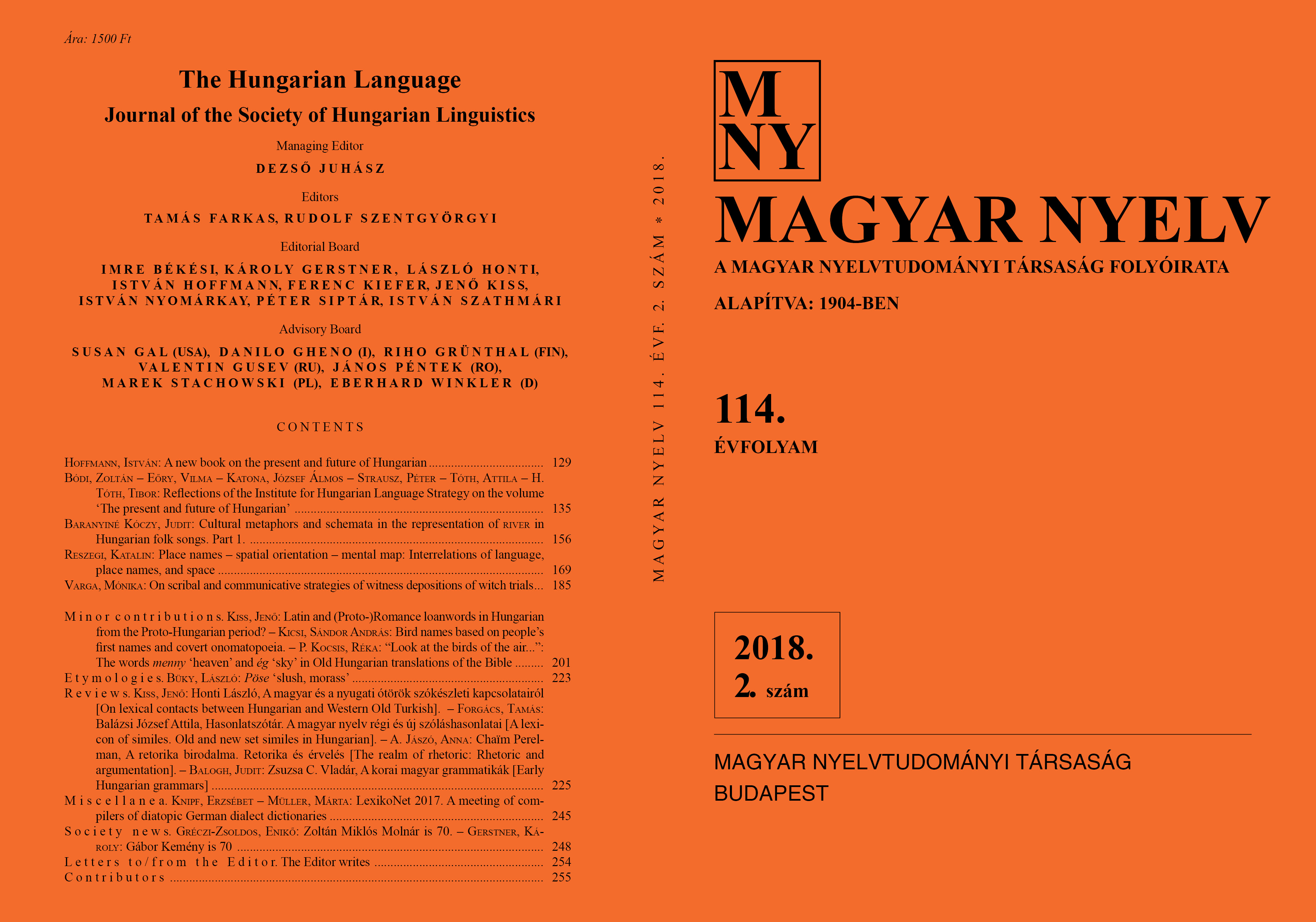Cultural metaphors and schemata in the representation of river in Hungarian folk songs
Part 1
DOI:
https://doi.org/10.18349/MagyarNyelv.2018.2.156Keywords:
cultural conceptualizations, Cultural Linguistics, cultural metaphor, folk conceptualization, folk song, image schemaAbstract
The aim of this paper is to disentangle the conceptual net lurking behind the appearance of rivers in the context of love in Hungarian folk songs. The theoretical framework of the paper is given by Cultural Linguistics, a branch of cognitive linguistics studying interrelationships of language, culture, and conceptualization. A corpus study of folk songs suggests that one of the main sources of the representation of human feelings is people’s experience of nature, implemented in metaphors concerning the natural environment. It can be stated on the basis of the folk songs studied here that metaphoric reference to rivers can be traced back to the conceptual metaphor emotions are watercourses appearing in a number of specific metaphors and image schemas deeply rooted in cultural experiences. The representational structure of folk songs is organised by an overall cultural schema, chastity, emerging from village dwellers’ strict moral norms. The study shows that natural scenes of folk songs are associated with conceptual metaphors, in particular, emotion-metaphors, but a genuine (and full) explanation can only be given in terms of the notion of love as entertained by traditional Hungarian communities and the related socio-cultural norms and moral principles of those communities.
Downloads
Published
Issue
Section
License
Copyright (c) 2024 Judit Baranyiné Kóczy

This work is licensed under a Creative Commons Attribution-NonCommercial-NoDerivatives 4.0 International License.
Magyar Nyelv is a Diamond Open Access periodical. Documents can be freely downloaded and duplicated in an electronic format, and can be used unchanged and with due reference to the original source. Such use must not serve commercial purposes. In the case of any form of dissemination and use, Hungarian Copyright Act LXXVI/1999 and related laws are to be observed. The electronic version of the journal is subject to the regulations of CC BY-NC-ND (Creative Commons – Attribution-NonCommercial-NoDerivatives).
The journal permits its authors, at no cost and without any temporal limitation, to make pre-print copies of their manuscripts publicly available via email or in their own homepage or that of their institution, or in either closed or free-for-all repositories of their institutions/universities, or other non-profit websites, in the form accepted by the journal editor for publication and even containing amendments on the basis of reviewers’ comments. When the authors publicize their papers in this manner, they have to warn their readers that the manuscript at hand is not the final published version of the work. Once the paper has been published in a printed or online form, the authors are allowed (and advised) to use that (post-print) version for the above purposes. In that case, they have to indicate the exact location and other data of the journal publication. The authors retain the copyright of their papers; however, in the case of an occasional secondary publication, the bibliographical data of the first publication have to be included.



